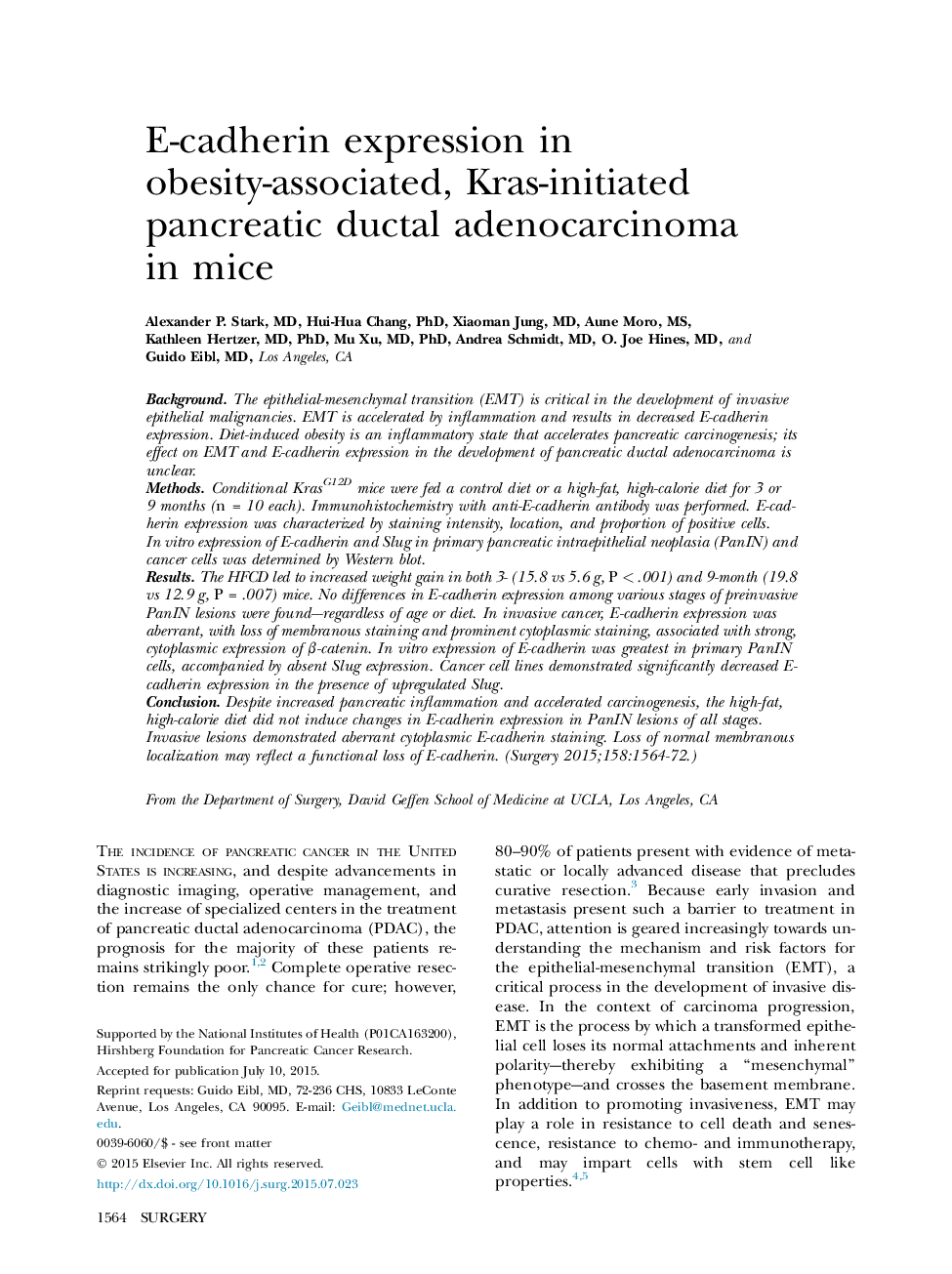| Article ID | Journal | Published Year | Pages | File Type |
|---|---|---|---|---|
| 4306411 | Surgery | 2015 | 9 Pages |
BackgroundThe epithelial-mesenchymal transition (EMT) is critical in the development of invasive epithelial malignancies. EMT is accelerated by inflammation and results in decreased E-cadherin expression. Diet-induced obesity is an inflammatory state that accelerates pancreatic carcinogenesis; its effect on EMT and E-cadherin expression in the development of pancreatic ductal adenocarcinoma is unclear.MethodsConditional KrasG12D mice were fed a control diet or a high-fat, high-calorie diet for 3 or 9 months (n = 10 each). Immunohistochemistry with anti-E-cadherin antibody was performed. E-cadherin expression was characterized by staining intensity, location, and proportion of positive cells. In vitro expression of E-cadherin and Slug in primary pancreatic intraepithelial neoplasia (PanIN) and cancer cells was determined by Western blot.ResultsThe HFCD led to increased weight gain in both 3- (15.8 vs 5.6 g, P < .001) and 9-month (19.8 vs 12.9 g, P = .007) mice. No differences in E-cadherin expression among various stages of preinvasive PanIN lesions were found—regardless of age or diet. In invasive cancer, E-cadherin expression was aberrant, with loss of membranous staining and prominent cytoplasmic staining, associated with strong, cytoplasmic expression of β-catenin. In vitro expression of E-cadherin was greatest in primary PanIN cells, accompanied by absent Slug expression. Cancer cell lines demonstrated significantly decreased E-cadherin expression in the presence of upregulated Slug.ConclusionDespite increased pancreatic inflammation and accelerated carcinogenesis, the high-fat, high-calorie diet did not induce changes in E-cadherin expression in PanIN lesions of all stages. Invasive lesions demonstrated aberrant cytoplasmic E-cadherin staining. Loss of normal membranous localization may reflect a functional loss of E-cadherin.
